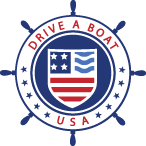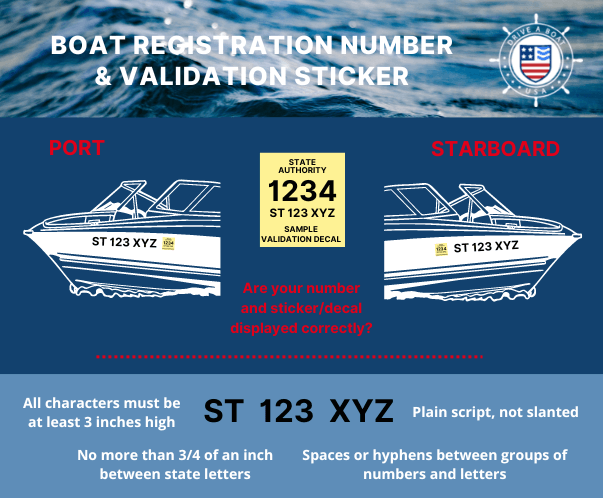Boat Registration and Titling Guide
To prove that you own your boat, and to operate it legally with in the United States, you will need to register and possibly also title your boat.
Rules and regulations surrounding boat registration and boat titling differ from state to state, but there are things to know about the process no matter where you live in the country.
Let’s take a look at boat registration and titling in a bit more detail.
What is boat registration?
In the United States, boat registration is similar to car registration, and is required by law. In general, all boats that have a motor and operate in U.S. waters must be registered with a state boating agency. The rules and regulations for boat registration vary according to state.
Boat registration allows lost or stolen boats to be identified and tracked, and boat registration fees pay to enforce navigation and pollution rules. In some states, registration is proof of ownership of a boat.
What boats require registration?
There are currently almost 12 million boats registered in the United States. Whether you need to register your boat depends in part on your location and the type of boat you own. To get up-to-date, state-specific information about boat registration, reach out to your state’s boating department.
In general, in the United States, the following type of boats have to be registered with the state where they will be used:
- All boats that are powered by gasoline, diesel or electric motor (including a trolling motor)
- Personal Watercraft (PWC)
- Sailboats over a certain size
- Boat trailers (separately from the boat)
Most kayaks, paddleboards, canoes, rowboats and other human-powered craft do not usually need to be registered.
How do I register my boat?
In most states, you will register your boat with the Department of Motor Vehicles. In some states, it may be with the Department of Natural Resources (DNR) or the Department of Fish and Game, or even the Department of Licensing. You can only register your boat in one state.
You should register your boat immediately after purchasing it, as some states have a limit to the number of days permitted between purchase and registration.
Registration is usually good for one to three years before having to be renewed. The local boat registration authority will send you a renewal form and a bill. Once you pay, you will receive a renewal sticker.
If you move to a different state, you will need to register your boat in the new state within 60 days, if you intend on using the boat primarily in your new location.
There are 4 main steps to registering a boat:
- Find out how to register a boat in the state where you will be operating the boat.
- Complete a registration form, either online, through the mail, or in person.
- Provide proof of ownership as needed.
- Pay the registration fee, which will vary by state and according to the size of your boat.
How do I prove my boat has been registered?
Boat registration numbers consisting of a two-letter state code and a combination of numbers and letters must be displayed on the hull of your boat on both the port and starboard sides of the bow. It’s always a good idea to review the correct terms for the parts of a boat to make sure you are following instructions and obeying safety directions correctly.
The registration number is your boat’s license plate. The characters are read from left to right and should be about 3-inches tall, in block letters, displayed in a colour that contrasts with the colour of the boat. Letters must be separated from numbers by a space or hyphen. They can be stick-on letters of the type sold at hardware stores, or can be painted directly on the boat.
You must also stick the registration sticker or decal on both sides of your boat, just before and within 6 inches of the registration number. Your registration (certificate of number) must always be on board. These prove that your boat registration is valid for that year.
What is boat titling?
Some boats may need to be titled. A boat title is a legal document that acts a proof of ownership. Titling may be required in order to sell your boat, but titling rules differ from state to state. Any boat can be voluntarily titled, but sometimes just state registration is sufficient to prove ownership.
Does my boat need a title?
The state boating department where you live and operate your boat can tell you whether your boat needs a title. In many states, shorter boats do not require a title to prove ownership, and longer ones do. Often, shorter boats only require registration to prove ownership.
If you are selling a boat, you need to prove that you own the boat in the state where you are making the sale. If you are buying a boat, you will need to know what documentation you need to prove that you have purchased the boat.
How to get a title for a boat
Boat titles are issued by individual states. Every time a boat changes hands, it is given a new title. Sometimes this service is free, but you could be charged a nominal fee.
If you have a boat that has never been titled (or registered), you will need to contact your state boating authority. Always check with local authorities to find out exactly how to obtain and pay for a boat title. The cost usually ranges from being completely free to between $10 and $20.
Boat documentation
Note that titling and registering are not the same thing as ‘documentation’. Documenting a boat is done at the federal level and is not necessary for boats under 5 tons (usually 27 feet long). In some cases, a boat that is documented does not need to be registered. To learn more, visit the National Vessel Documentation Centre.
Drive a Boat USA offers state-by-state boating certification
Drive a Boat USA is recognized by the National Association of State Boating Law Administrators (NASBLA) and our online boating courses allow you to study at your own pace and get certified wherever you are. As a recognized provider of state approved boating licenses, we can teach you what you need to know to operate a boat legally and safely.
Contact us today to learn more about boating laws and safety in the United States. Whether you’re just learning how to drive a boat or you’re ready to take a boater safety course, we have something to offer!


